30 November 2018
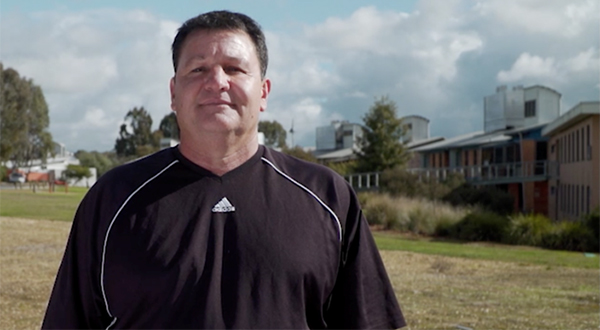
Dr James Charles
Associate Professor of Indigenous Teaching & Learning, Deakin University
Bachelor of Podiatry
Masters of Health Science (Podiatry)
Dr James Charles could not have imagined how far he would eventually come after he decided to continue his education at the age of 27-years-old, and was immediately deemed illiterate, dropping out of high school a decade and a half earlier.
It has been a long and winding road for Dr Charles, now one of Australia’s foremost academic authorities on Aboriginal foot health, but he was supported along the way by the love of his family, and several UniSA Scholarships – including the Irene and David Davy Scholarship – providing vital financial support and confidence he was on the right path.
“High school didn’t work out for me and I dropped out to work with my uncle as a plumber when at 13 I was told I would have to repeat the year,” James says.
“Then in my mid-twenties, with two young children, I found myself starting to think beyond myself and feeling concerned about how I was going to help my children with their school work.
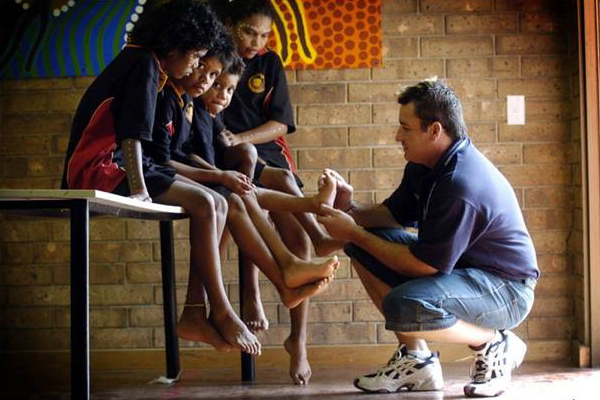
It was important for James to break the cycle of poor levels of education in his family, and to show his children that it would be possible to get a decent education and graduate from high school. He signed up for a TAFE course that would allow him to earn his Year 11 and 12 grades.
“When I applied for the course, the TAFE educator said ‘James, congratulations, you can join our course – you are illiterate’. I can see the lighter side of this welcome now, but it was confronting to hear this as a man in his mid-twenties.”
A proud Kaurna man, born and raised in Adelaide’s northern suburbs, it was also important for James to find a way to give back to his community. This goal eventually led him to enrol in the Bachelor of Podiatry at UniSA with a focus on Aboriginal Health.
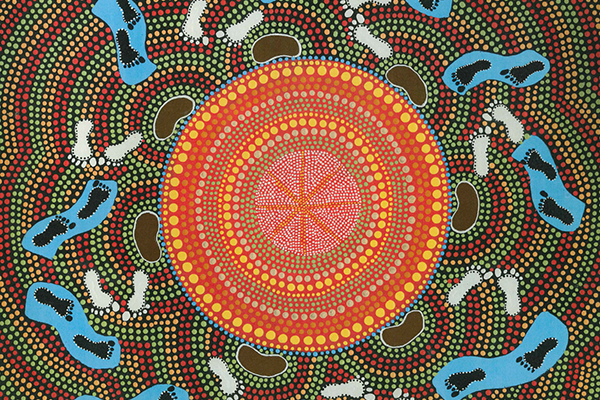
“I was a mature age student amongst mostly 19 and 20-year-olds, but I found an amazing mentor in Associate Professor Sara Jones who gave me on-going support and help. She also provided podiatry services to the Aboriginal community, which really resonated with me.”
“I worked hard and proudly graduated with a Bachelor of Podiatry, and continued into my Masters at UniSA.” Dr Charles is just one of many students that were crucially helped along the way to graduation through UniSA’s scholarship program.
The University is proud of its legacy and commitment to equity as the university in South Australia with the highest rate of students from a disadvantaged background, successfully completing their degrees.
In fact, nearly 30 per cent of commencing students to UniSA come from an economically disadvantaged background. The University also receives more applications from students who qualified for the equity category than any other, so support from UniSA scholarship donors is more paramount than ever.
Now with the benefit of hindsight, James is also a passionate advocate for supporting university students with scholarships when they are struggling to make ends meet and complete their studies, as he was fortunate enough to receive several scholarships, including the Irene and David Davy Scholarship.
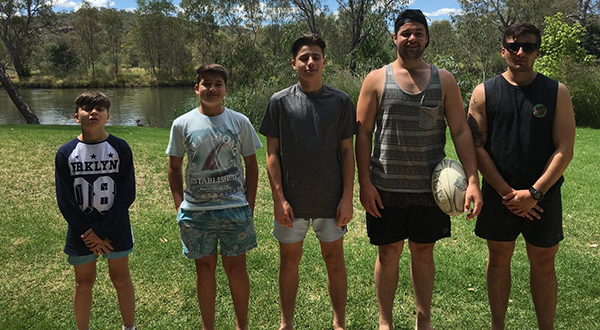
As a father of five while completing his own studies, James is well aware of the additional stress that juggling multiple responsibilities can place on students.
“Without this financial support I know for a fact that I wouldn’t have been able to continue to study full-time, and I may not be where I am today without it.”
James says that knowing that these generous people, basically strangers, believed in him and wanted him to succeed was an additional motivation, “I am still in touch with the family who supported me and they have been following my success – I hope with pride knowing just how much their support made my career possible.”
Without the generosity of people like Irene and David Davy, the potential of countless individuals – like Dr James Charles – would not have been realised. When they succeed, we all succeed.
He is an inspiration for Aboriginal people, not only for his personal example of achievement, but also in the fantastic work he is doing to research and teach in his field. In 2008, he was the inaugural Chair of the Indigenous Allied Health Network and in 2017 he was named national NAIDOC Scholar of the Year.
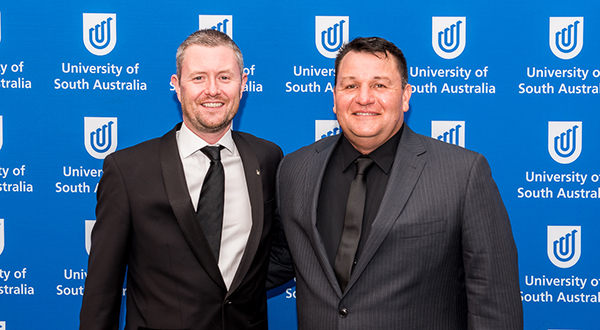
Now an Associate Professor Indigenous Teaching and Education, and Coordinator Master of Public Health in the Institute of Koorie Education and the School of Medicine at Deakin University, James was also honoured this year for his outstanding achievements at the UniSA Alumni Awards.
“Sadly, Aboriginal people – especially those in rural and remote communities – are at higher risk of foot health problems than the general population.
“As part of my podiatry work, I was visiting clinics and community centres for Aboriginal people around Australia and I kept seeing the same types of problems. Through my research, and then my PhD, I found that Aboriginal people have high rates of equinus – reduced movement at the ankle – that can contribute to serious issues and lead to ulceration and amputation, especially as people get older and heavier.
“There were some academics who didn’t believe my suspicions that there is a genetic element which contributes to this problem – I was told poor foot health was ‘just a result of smoking and diabetes’.
“I am really glad I trusted my instincts and continued to focus on my work. Ultimately by trusting myself and staying dedicated to my education, I have been able to help so many people improve their health and wellbeing.
“Now I am also working as an academic supporting Aboriginal students studying health degrees. I see firsthand the wide barriers that students face and I know how challenging juggling study with work, family and life.”
To find out more about the Scholarship Fund, and how you can donate visit: http://bit.ly/2KdaUPG.




